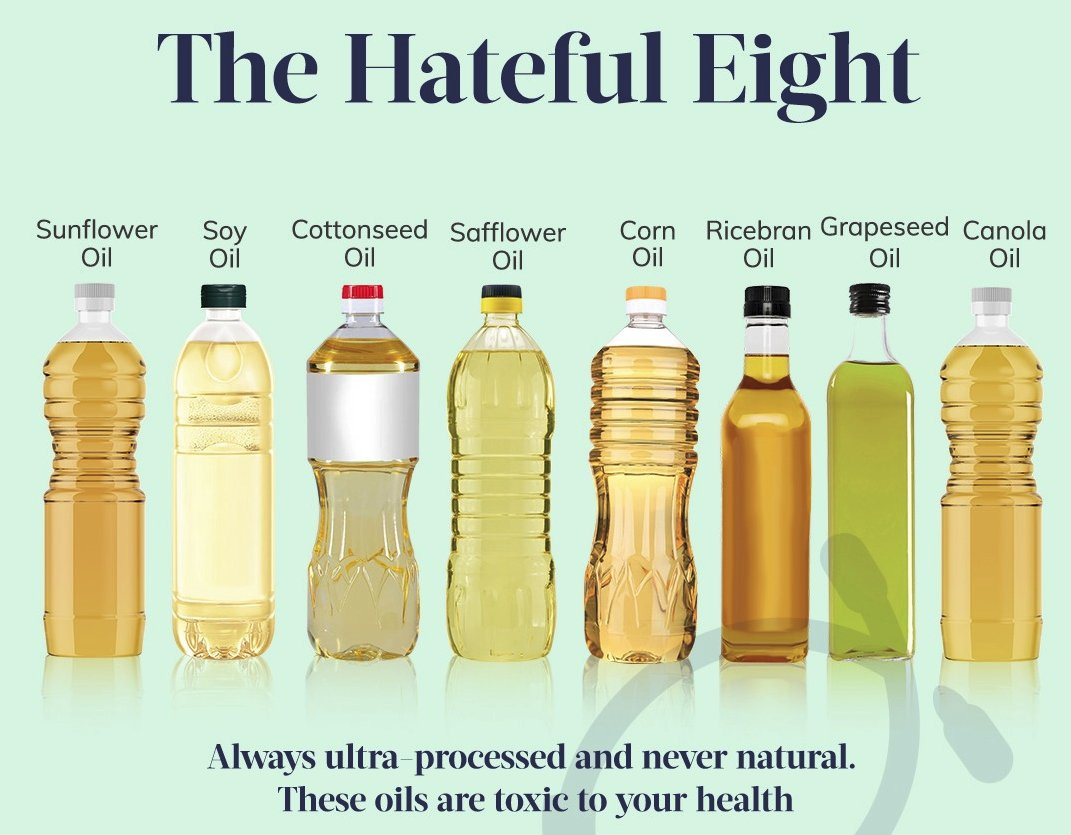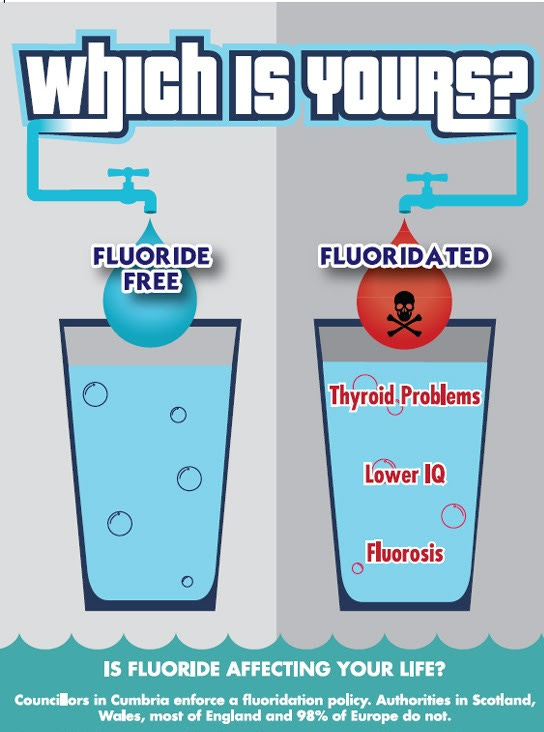1. What’s making Americans sick? RFK’s MAHA new documentary blames four key culprits – Here’s what the research says
The documentary Toxic Nation, backed by Robert F. Kennedy Jr. and his “Make America Healthy Again” movement, claims that ultra processed foods, seed oils, glyphosate, and fluoride are driving a chronic disease crisis in America, particularly among children.
It critiques current health policies and promotes natural diets, organic foods, and caution around environmental toxins. While it cites research linking these substances to issues like cancer, diabetes, and cognitive decline, many experts view its claims as controversial or not fully supported by consensus science.
Regardless of your thoughts on RFK Jr., he makes a great point here. In my opinion, it all boils down to one statement: If everyone ate healthy, lived healthy, and was healthy, big pharma wouldn’t be an industry worth >= $5 trillion. Now lets dive deeper into these 4 culprits.
2. Ultra-processed foods: what they are and how to identify them
By: National Library of Medicine
Ultra-processed foods (UPFs), as defined by the NOVA classification system, are industrial formulations made mostly or entirely from substances rarely used in home kitchens, often altered by chemical processes and enhanced with cosmetic additives (e.g., flavors, colors, emulsifiers) for taste, shelf life, and branding.
Consumers can identify UPFs by checking ingredient lists for substances like high-fructose corn syrup, enriched wheat flour, hydrogenated oils, and additives such as sweeteners and flavor enhancers—items not commonly used in traditional cooking.
UPFs are energy-dense and typically high in sugar, unhealthy fats, and salt, while low in fiber and essential nutrients. Their consumption is linked to increased risks of obesity, heart disease, diabetes, cancer, and other chronic conditions.
In high-income countries, UPFs account for over 50% of dietary energy, and their consumption is rapidly rising in middle-income nations. Their convenience, palatability, aggressive marketing, and profitability drive their widespread adoption.
My advice: If it doesn’t come from the earth, don’t eat it. For example, I enjoy baked goods and pasta, but I do my best to make sure they consist of ingredients that our earth provides.
3. Seed Oils: Are They Actually Toxic?
What they are: Seed oils (like canola, soybean, sunflower, and corn oil) are plant-based oils extracted from seeds, commonly used in home cooking, frying, and found widely in processed and ultra-processed foods.
Processing & Nutrient Loss: These oils are highly refined through chemical processes such as bleaching, deodorizing, and sometimes solvent extraction, which removes beneficial nutrients and may introduce harmful compounds.
Health Concerns: Seed oils are high in omega-6 fatty acids, which can promote inflammation when consumed in excess, especially when omega-3 intake is low—contributing to chronic health issues like heart disease, diabetes, and arthritis.
Usage in Unhealthy Foods: The main concern isn’t necessarily the oils themselves but their prevalent use in processed, fried, and fast foods that are already poor in nutrition and linked to health risks.
Recommendations: Limit seed oil use, avoid cooking them at high heat, and opt for healthier alternatives like extra virgin olive oil (low-heat) and avocado oil (high-heat). Focus on reducing processed food intake rather than obsessing over avoiding seed oils entirely.
4. Glyphosate in food: A narrative review
Widespread Use: Glyphosate is the most widely used herbicide globally, applied in over 100 crops. Its use has grown due to glyphosate-resistant crops.
Health Risks: Linked to cancer (e.g., lymphoma, breast), DNA damage, neurodevelopmental issues, diabetes, and maternal health effects—especially concerning for children.
Environmental & Food Contamination: Found in soil, water, air, and many foods (grains, honey, infant formula). Organic diets show lower exposure.
While current residue levels are within “safety thresholds”, concerns persist over potential chronic health risks. Further research is needed, especially regarding children over the long-term, cumulative exposure, and the interaction with environmental changes.
5. Why do we have fluoride in our water?
By: Medical News Today — Yvette Brazier
Fluoride is added to municipal water to reduce tooth decay, especially in areas with low natural fluoride levels. It provides preventive dental benefits, especially for those without access to regular dental care.
Risks of Excess Fluoride: Dental fluorosis (white spots on teeth) if overexposed in early childhood. Skeletal fluorosis (bone and joint damage) is possible. Possible links to thyroid issues and lower IQ in children from high exposure, "though evidence is inconclusive”.
Take this how you want to. I recommend doing research on your own to make your own conclusions. The articles I’ve read on this topic all say that it can “potentially” cause serious harm in excess amounts. Then they all go on to say regulations are well below these levels and cannot provide a concise conclusion. It’s very suspicious to me is all im saying. And I’m not saying it doesn’t help with dental health. I can see using fluoride in our toothpaste because we are not swallowing toothpaste, nor consume it as much as water.
Whether fluoride is beneficial to our dental health or not, I don’t think it should be in our drinking water. I believe there are other ways we can maintain great dental health (toothpaste, hydrogen peroxide, flossing etc..), without polluting our water supply and causing serious long-term harm to our bodies.
Closing Note: This week we focused on one main topic (RFK Jr.’s MAHA movement). This is all very new to us as we’ve been lied to in the past. I’m not saying everything listed here is killing us today or that it is all bad. You have to take into account utilitarianism, which I believe is what some of these topics like glyphosate and fluoride maybe provided for a time. With that said, if all of these culprits were out of our systems/environments, I believe we would be a healthier species. I don’t know if there will be drastic change from this movement (I hope so), but we play a small role in that. What we are responsible for, is our families and our bodies. There are things we can do like: remove processed food and seed oils from our diet, buy organic (as it tends to contain lower levels of glyphosate), and use fluoride filters for our water. I hope you enjoyed the read, please let me know your thoughts and any topics you would like to learn more about.
- The FatLete Journal






